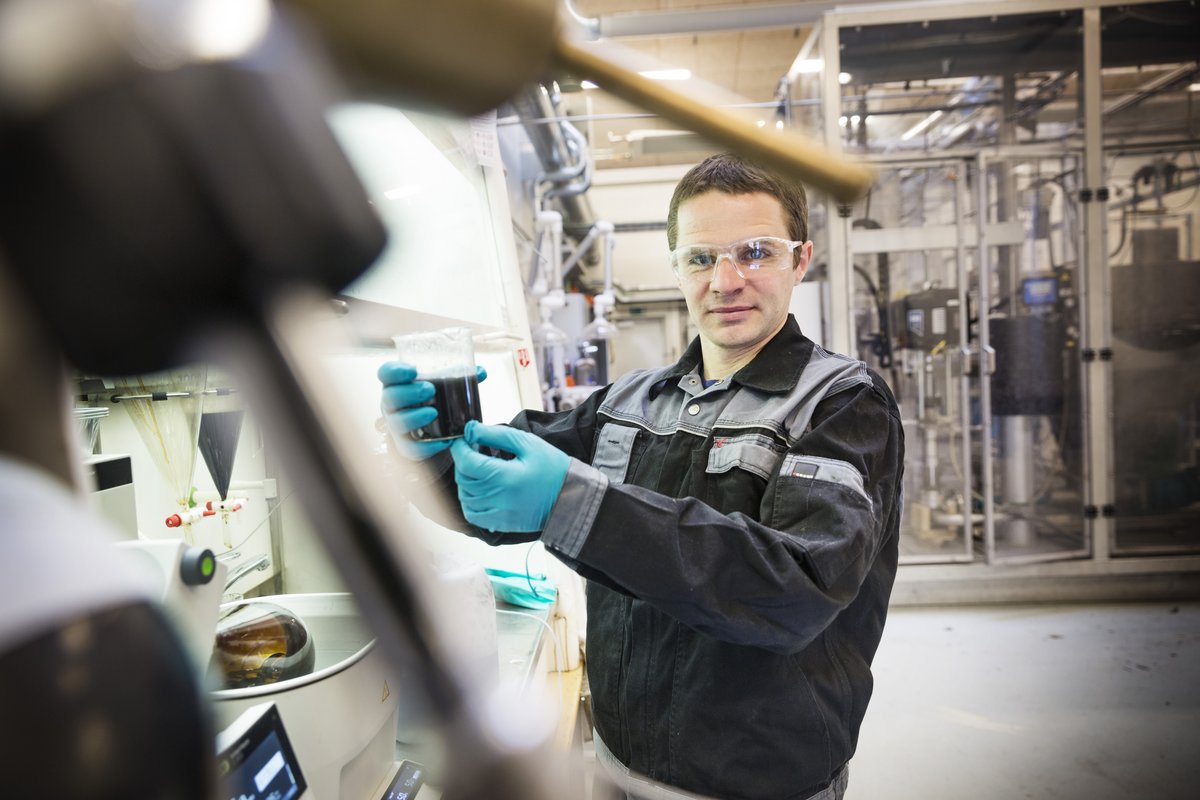An engineer from Aarhus University has received funding from the prestigious ERC Starting Grant for a research project, which could have far-reaching and ground-breaking significance for the environment throughout the world. The project is a breakthrough in the way we deal with our wet waste, and the goal is to recycle valuable phosphorus and carbon.

By Jesper Bruun, September 2020.
Slurry and sewage sludge can be managed far more sustainably, with benefits for the environment throughout the world. This is the opinion of engineer and assistant professor at the Department of Engineering at Aarhus University, Patrick Biller. With a grant from the prestigious ERC Startup pool under the EU research and innovation programme, Horizon 2020, of approx. DKK 11.2 million (EUR 1.5 million), he can research into the huge potentials in wet waste.
The REBOOT project is ground-breaking because it will allow for almost 100% recycling of valuable phosphorus and carbon resources in wet waste management. Through ultra-modern technology called continuous hydrothermal liquefaction (HTL), phosphorus and carbon are recovered in a form known as bio-crude. The end product consists of bio-crude, fresh water, hydrogen and CO2.
- This grant makes it possible to develop this exciting new technology that will enable us to recover valuable phosphorus from waste otherwise difficult to manage, says Assistant Professor Patrick Biller.
Today, phosphorus is a valuable and very rare resource, and it is ranked among the top 20 most critical raw materials by the EU. Europe does not have its own phosphorus reserves in the subsoil, and phosphorus is therefore primarily imported from North Africa, where it is dug up in mines as phosphate rock. The mining industry as well as refining and transporting phosphoric rock for fertilizer entails significant emissions of greenhouse gases (3.1 kg of CO2 per kilo phosphoric fertilizer). It has also been assessed that there are only enough phosphorus resources for the next 50-100 years, and this may have fatal consequences for humanity.
Every year, Danish agriculture imports 50,000 tonnes of phosphorus, because it is vital to apply phosphoric fertiliser to crops to maintain normal yields for modern agriculture.
Denmark's approx. 13 million pigs also produce large amounts of phosphoric slurry, which is difficult to reuse as fertiliser without harming the environment.
To recycle the phosphorus, farmers apply slurry directly to fields as fertiliser, and in many countries this leads to environmental problems such as contamination of the aquatic environment, groundwater and air. The problem is that phosphoric slurry can contain large amounts of antibiotics, which can cause problems with antibiotic resistance when the slurry is spread on the fields.
The same problem applies to sewage sludge. Here, residues from such things as microplastic, oestrogens, pathogens and pharmaceutical products, including antibiotics, make it very difficult to directly recycle the sludge.
During the five years in which the REBOOT is to be funded by the ERC, among other things Patrick Biller will develop new solutions in catalysis, water purification technologies and new filtration technologies with a view to building one cohesive system that is fed with sewage sludge and slurry at one end, and which supplies the valuable raw materials at the other end.
The engineer expects to extract and recycle 95-100 per cent of phosphorus from wet waste, and about 65 per cent of the bio-crude.
- The relatively high temperatures and pressures in the HTL plant destroy all environmentally hazardous substances, so the phosphorus we eventually recover is clean and environmentally and plant-friendly, says Patrick Biller.
If the project succeeds, it could have a tremendously positive effect on the environment all over the world. Among other things, it would make phosphorus mining unnecessary and generate sustainable fuel extracted directly from our wastewater. At the same time, it will have great significance for the problems associated with lack of sewage treatment in many developing countries, such as the spread of disease and other adverse health effects.
The project is called REBOOT, and it officially begins on 1 January 2020, when Patrick Biller will set up a research group. The project will be run at pilot scale at the department's Centre for Biorefining Technologies at Foulum, which is already home to one of the world's largest HTL reactors.